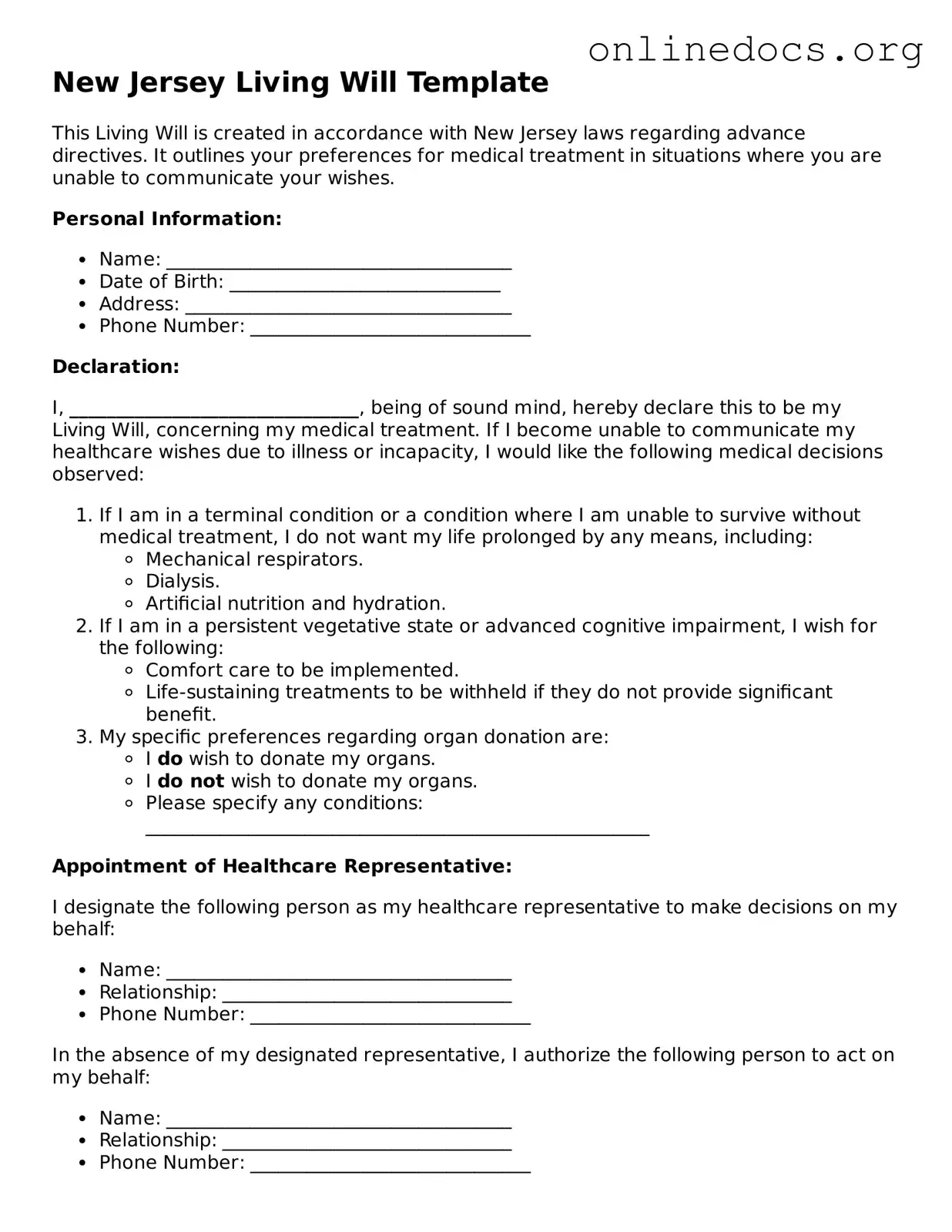The New Jersey Living Will form shares similarities with the Advance Directive for Health Care. Both documents allow individuals to express their preferences regarding medical treatment in the event they become unable to communicate their wishes. An Advance Directive can encompass a broader range of decisions, including appointing a healthcare proxy to make choices on behalf of the individual. This makes it a comprehensive tool for end-of-life planning, ensuring that a person's medical care aligns with their values and desires, even when they cannot articulate them themselves.
Another document closely related to the New Jersey Living Will is the Durable Power of Attorney for Health Care. This document specifically designates a trusted person to make healthcare decisions on behalf of the individual if they are incapacitated. While a Living Will outlines specific treatment preferences, the Durable Power of Attorney provides a designated agent with the authority to interpret and make decisions based on those preferences. This ensures that an individual’s healthcare wishes are respected and followed in various situations that may arise.
The Physician Orders for Life-Sustaining Treatment (POLST) form is also similar to the New Jersey Living Will. POLST is designed for individuals with serious health conditions and provides clear medical orders about the types of treatment they wish to receive or avoid. Unlike a Living Will, which is more general, POLST translates a person's wishes into actionable medical orders that healthcare providers must follow. This document is particularly useful in emergency situations, where quick decisions are necessary.
When navigating the buying or selling of a vehicle, it's crucial to understand the importance of a well-prepared Motor Vehicle Bill of Sale form. This document acts as a trustworthy tool in the transaction process. For additional guidance on creating this form, refer to this essential resource on the Motor Vehicle Bill of Sale solutions.
In addition, the Do Not Resuscitate (DNR) order is another document that aligns with the principles of a Living Will. A DNR specifically instructs medical personnel not to perform CPR if a person’s heart stops beating or if they stop breathing. While a Living Will may address broader treatment preferences, a DNR focuses solely on resuscitation efforts. It serves as a clear directive that reflects an individual’s wishes regarding life-sustaining measures in critical moments.
Lastly, the Health Care Proxy form is akin to the New Jersey Living Will in that it allows individuals to appoint someone to make healthcare decisions on their behalf. While the Living Will articulates specific wishes regarding medical treatment, the Health Care Proxy empowers a designated individual to make decisions based on those wishes when the person cannot do so themselves. This document emphasizes the importance of having a trusted person who understands one’s values and can advocate for them in healthcare settings.
